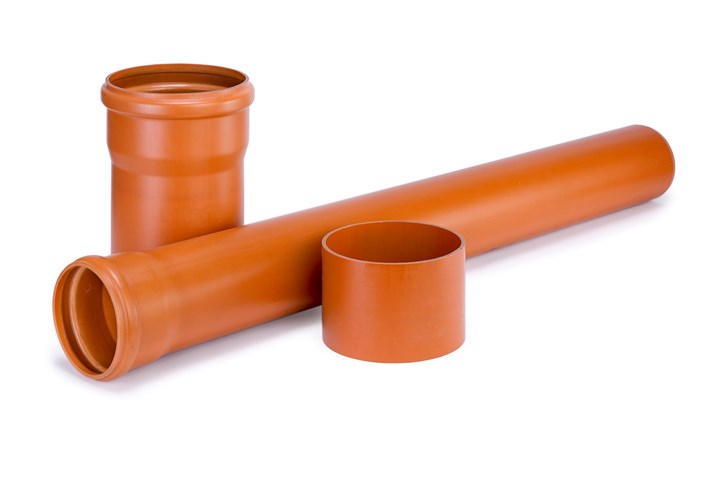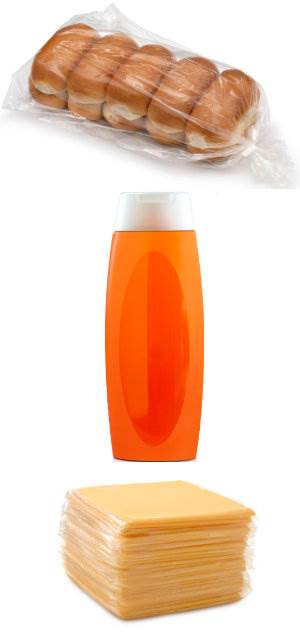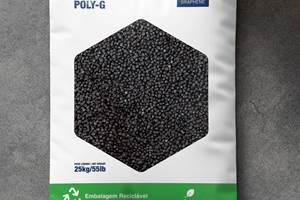Biobased Additives Compatible with Range of Commodity Resins
UBQ Materials has added sustainable additives compatible with a all commodity thermoplastics and PLA.

Israel’s UBQ Materials has expanded its globally patented waste-to-materials technology with the addition of sustainable biobased additives. The company confirms that the new additive formulations are compatible with PP, HDPE, LLDPE, PS, PVC and PLA and can replace various percentages depending on the application. Says a company source, “For example, if a pallet is made with PP, one of the new formulations would partially replace and be compatible with it, without compromising quality and durability.” As previously reported, UBQ’ advanced waste conversion technology creates a biobased thermoplastic composite by breaking down to their basic particulate constructs unsorted municipal solid waste including organics such as garden trimmings, soiled cardboard, and food waste and reassembled into a matrix.
Also based on UBQ’ technology, the new material replacements and additives are formulated to resolve performance challenges commonly encountered when integrating sustainable materials. The product lines are suitable as sustainability additives (10% to 30% load of UBQ-based material), or as material replacements (greater than 25% and higher load of UBQ-based material). This enables compounders and manufacturers to determine the right load level to balance consistent functionality with sustainability benefits. The portfolio includes three biobased sustainability additives and material replacement—ClimaPos, Q Series and Industrial, each tailored for different sustainability needs, encompassing circularity, recyclability, low-carbon footprint, and climate-positivity:
▪ UBQ ClimaPos: A biobased, climate-positive sustainability additive that enables greenhouse gas removal and avoidance and assists companies in achieving or surpassing ambitious climate objectives. With proven uses including planters, pet carriers, transport boxes, and window profiles, incorporating as little as 5%, ClimaPos can shift a product's carbon footprint to carbon neutrality.
▪ UBQ Q Series: The proven, standard material replacement known as UBQ, the Q Series is a one-to-one material swap that blends with most polymers. It can be used across industries, including automotive and mobility, building and construction, and logistics and supply chain management applications and is suitable for use on its own where final product characteristics permit.
▪ UBQ Industrial: A material replacement engineered for high-value function and reliability in operational uses, from shipping pallets in logistics to bitumen roofing or building infrastructure, UBQ Industrial is a cost-effective material choice when appearance matters less than functionality.
These primary formulations can be combined with additional modifiers or enhancers to achieve desired properties, optimizing product development, and reducing guesswork for product manufacturing. Supporting formulations for additional benefits include:
▪ UBQ Nclozur: A sustainability modifier formulated for odor mitigation, UBQ Nclozur is ideal for indoor and interior applications, which can include automotive interiors, consumer products, flooring, footwear and carpet backing.
▪ UBQ Impact: An enhancer that blends with a range of polymer matrices to meet performance requirements, enabling business to bring climate-positive circularity to applications as diverse as decking, office furniture, and car-door mirrors.
By incorporating as little as 5% of a UBQ material replacement or additive, businesses can – whether in a single product application or across its supply chain – achieve greater circularity, carbon-neutrality or even carbon-negative/climate-positive status. By designing products with various load levels and capabilities, UBQ enables businesses to achieve productivity goals while transitioning away from fossil-based plastics. UBQ will work with its compounding partners, value chain manufacturers, brand partners and product development teams to tailor the ideal formulation for each specific application.
Related Content
SI Group Gets FDA Approval Extension for Weston 705 & 705T
SI’s phosphite antioxidants get ‘green light’ for use in PET food-contact packaging
Read MoreIntrinsic Viscosity Enhancer for rPET and PET Food-Contact Applications
Nexam’s Nexamite MO2100 rebuilds molecular weight and increases IV to enable upcycling of rPET.
Read MorePFAS-Free Processing Aid for Blown Film Extrusion
Ampacet’s new processing aid said to perform as well as fluoro-based PPAs in blown film.
Read MoreGerdau Graphene Launches “First” Graphene-Enhanced PE Additive Masterbatch for Extruded Packaging and More
The company has also partnered with conglomerate Sumitomo Corp. for distribution of its graphene-enhanced masterbatches in Japan.
Read MoreRead Next
For PLASTICS' CEO Seaholm, NPE to Shine Light on Sustainability Successes
With advocacy, communication and sustainability as three main pillars, Seaholm leads a trade association to NPE that ‘is more active today than we have ever been.’
Read MoreMaking the Circular Economy a Reality
Driven by brand owner demands and new worldwide legislation, the entire supply chain is working toward the shift to circularity, with some evidence the circular economy has already begun.
Read MorePeople 4.0 – How to Get Buy-In from Your Staff for Industry 4.0 Systems
Implementing a production monitoring system as the foundation of a ‘smart factory’ is about integrating people with new technology as much as it is about integrating machines and computers. Here are tips from a company that has gone through the process.
Read More















